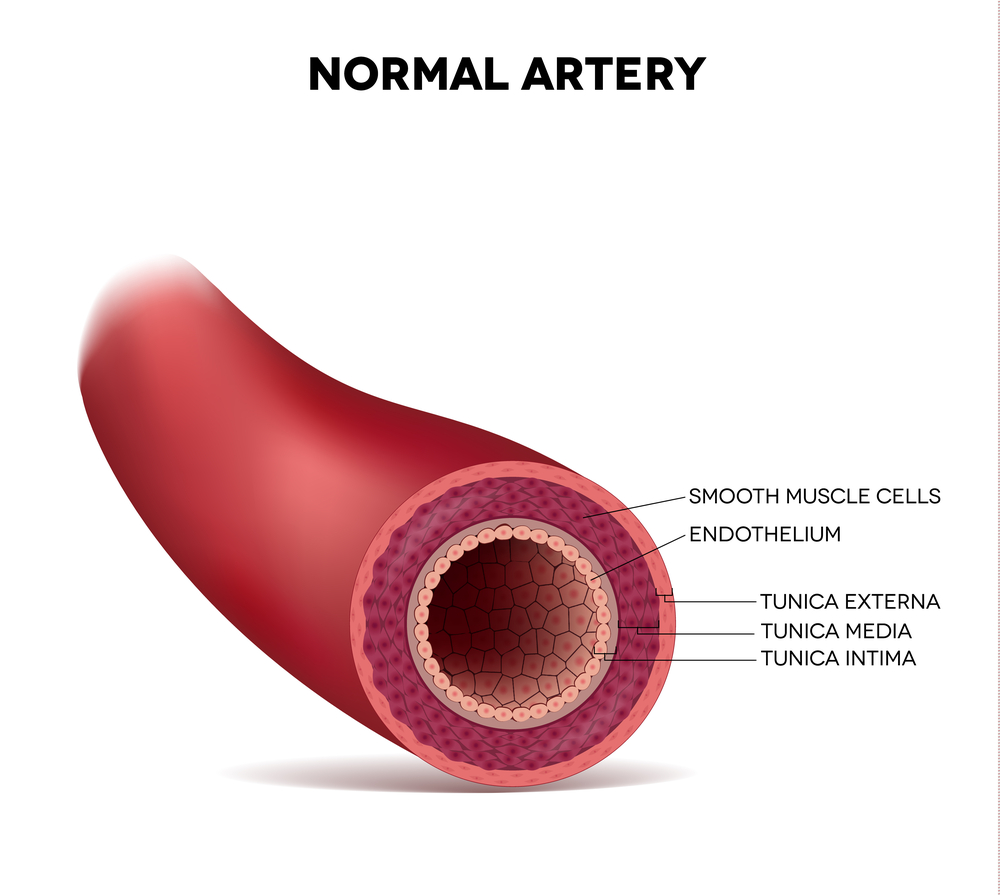Blocking Accumulation of Stress Protein in Mitochondria May Halt PAH Progression, Study Suggests

The accumulation of the stress-responsive heat shock protein 90 (HSP90) in the mitochondria of certain lung cells is a hallmark of pulmonary arterial hypertension (PAH), and inhibiting HSP90 reversed PH in two rat models of the disease, according to researchers.
The study, “Mitochondrial HSP90 Accumulation Promotes Vascular Remodeling in Pulmonary Arterial Hypertension,” was published in the American Journal of Respiratory and Critical Care Medicine.
Abnormal proliferation of pulmonary artery smooth muscle cells (PASMCs) and the resistance of these cells to cell death-triggering mechanisms contributes to progressive, and often fatal, PAH.
These two features, the abnormal growth and the resistance to apoptosis (cell death), are common in cancer cells.
HSP90 is directly linked to malignant growth and proliferation under certain conditions. The protein is often found in the mitochondria of tumor cells, but not in healthy cells.
Researchers hypothesized that the tendency of HSP90 to exist in mitochondria in pulmonary artery smooth muscle cells of PAH may contribute to these cells’ excessive proliferation and resistance to cell death.
First, they confirmed that unlike healthy PASMCs, “mitochondrial HSP90 accumulation is a hallmark of PAH-PASMCs.”
They also found that stress conditions associated with PAH (such as low oxygen or oxidative damage) promoted the translocation of HSP90 into the cells’ mitochondria.
HSP90 in mitochondria, researchers found, ensured cells’ survival by preserving mitochondrial DNA integrity and helped maintain their bioenergetic needs – the PAH-PASMCs showed a significant increase in the metabolic functions compared to healthy cells.
Finally, researchers asked whether targeting the accumulation of HSP90 in the mitochondria of PAH-PASMCs could have a therapeutic benefit and perhaps prevent the cells’ high growth rates.
They used an inhibitor that targets only the HSP90 in mitochondria, called Gamitrinib. The results showed that selectively blocking the mitochondrial HSP90 reduced PAH-PASMC proliferation and resistance to apoptosis without affecting healthy PASMCs.
“Based on our results showing that HSP90 is preferentially expressed in mitochondria of PAH-PASMCs and mediates cell survival, we hypothesized that inhibition of mtHSP90 [mitochondrial HSP90] may provide a fresh and valuable avenue to tackle established PAH in vivo,” researchers wrote.
They used two rat models of PAH and found that Gamitrinib improved PAH in both models.
“Our data show for the first time that accumulation of mtHSP90 is a feature of PAH-PASMCs and key regulator of mitochondrial homeostasis contributing to vascular remodeling in PAH,” the study concluded.






